Zimbabwe party loses bid to block Mugabe-era massacre hearings
Covid-19 update: number of cases in SA jumps to 709; health minister concerned about church infections
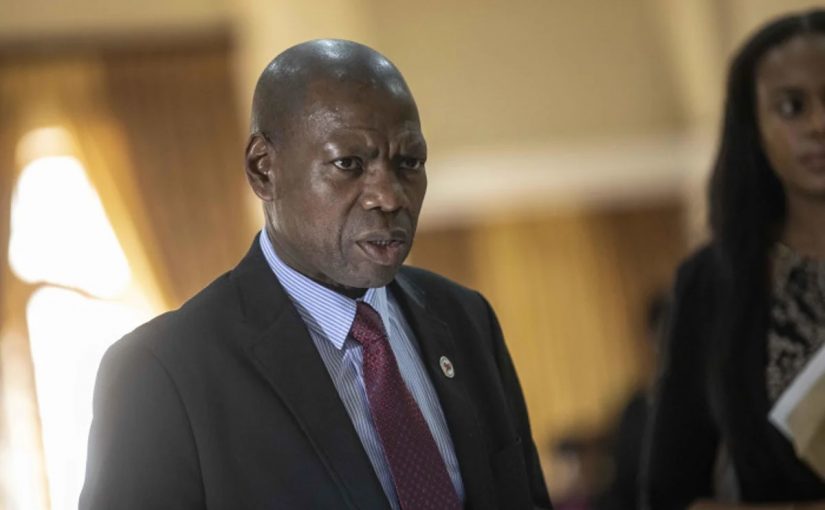
- Health minister Zweli Mkhize said the number of coronavirus cases in South Africa increased to 709 on Wednesday.
- He found the 50 people who tested positive after attending a church service in Bloemfontein particularly concerning.
- Meanwhile, South Africans are preparing for a national lockdown in a bid to slow the spread of the virus.
The number of coronavirus, or SARS-Cov-2, cases in South Africa jumped to 709 on Wednesday, the single largest jump since the virus was first reported in the country.
Health minister Zweli Mkhize said he is particularly concerned about the 50 people who tested positive after attending the Jerusalem Prayer Breakfast by the Divine Restoration Ministries in Bloemfontein on March 10.
Five Covid-19 positive foreigners from the United States, Israel and France took part in the breakfast.
Among those who had attended the service were ACDP leader Kenneth Meshoe, ACDP MP Steve Swart and well-known pastor Angus Buchan. All three have indicated that they have undergone testing.
Meanwhile, South Africans are preparing for a national lockdown to commence on Friday in a bid to slow the spread of the virus.
President Cyril Ramaphosa ordered the 21-day lockdown on Monday to ensure the health system is not overwhelmed.
The lockdown will shut down most South African industries, aside from essential services in safety and security, food and distribution and telecommunications and electricity.
All South Africans will be urged to stay at home and avoid physical contact during this time.
SAA, FlySafair and Comair cancel flights ahead of national lockdown
South African Airways (SAA), FlySafair and Comair have cancelled all domestic flights ahead of the 21-day lockdown on Friday.
The airlines are offering consumers free flight rebookings, and in some cases vouchers, to accommodate passengers on cancelled flights.
“We believe that the decision taken by our President is the correct one, and we are fully supportive of all efforts undertaken to curb the spread of this virus in our country,” FlySafair chief marketing officer Kirby Gordon said.
SAA and Comair said they will resume flights on April 17, and FlySafair from April 20.
South Africa to enter 21 days of lockdown on Thursday
President Cyril Ramaphosa announced that South Africa will enter a 21-day lockdown on Thursday to slow the spread of the coronavirus.
This means most South Africans, aside from those in essential services, will be forced to stay at home, and only leave for medical attention, or to go buy groceries.
He said immediate swift and extraordinary action is required to curb the spread of the virus to ensure that the country’s health services are not strained.
Businesses that will be allowed to continue include, amongst others, pharmacies, laboratories, banks and supermarkets.
Ramaphosa said a fund, named the Solidarity fund, will be established to support the country’s economy, and small businesses during and after the lockdown.
He said the Rupert and Oppenheimer families have already donated R1 billion each to fund.
You are legally required to inform authorities if you know about someone who may have the novel coronavirus.
Regulations last updated in 2017, years before the novel coronavirus behind Covid-19 was detected, means South Africans are legally obliged to report on their neighbours who may be infected if authorities have not yet been informed.
The rules for notifiable medical conditions list mostly specific diseases, such as the plague, but make provision for the emergence of new diseases such as Covid-19.
In terms of the rules, laboratories, doctors, and others in the medical field must report cases of such diseases to the National Institute for Communicable Diseases (NICD). But other members of the community are required to let healthcare workers know if they so much as suspect someone may have had contact with a carrier.
Failing in the duty to report could come with up to 10 years in jail.
More misery for rand, markets amid US fight over stimulus package.
It’s shaping up to be another rocky week in the stock market. US equity futures fell sharply after trading opened overnight, triggering a limit down trading halt.
The rand has slumped to R17.70/$ as investors dump risky assets. Moody’s is expected to downgrade South African government bonds to “junk” later this week.
Over the week, the US Senate failed to agree on a stimulus package designed to fight the sudden economic fallout from coronavirus. The rescue package would amount to roughly $1.6 trillion (R28 trillion) of aid, according to Politico.
Nedbank offers to help struggling clients, with debt holidays or more credit.
Following Standard Bank’s decision to extend a three-month debt repayment holiday to students and all businesses with a turnover below R20 million per year, Nedbank says it will offer all clients “individual solutions to cashflow challenges” due to the coronavirus.
This includes that they will be able to halt debt repayments (or part thereof) for a “suitable” period. Alternatively, their loan periods may be extended or they could get more credit to manage short term cashflow shortfalls.
“We are committed to supporting our clients during this time of uncertainty and have a number of solutions available to assist clients in good standing who are impacted by this pandemic,” the bank said in a statement.
No South African Covid-19 patients are critical, the health department has said.
None of the patients who tested positive for Covid-19 are in intensive care or critical, and were rather admitted to hospitals to undergo assessments, says the Health Department.
Health Minister Zweli Mkhize said patients were admitted to hospitals after testing because they needed to undergo assessments.
In the Free State, five people who attended a church gathering have tested positive for the coronavirus – the provincial health department is now preparing to test up to 600 people who may have been in contact with the congregants.
Up to 70% of South Africans will get coronavirus, health minister believes.
Health minister Zweli Mkhize believes between 60% to 70% of South Africans will get the coronavirus, of which only about 20% of those will be serious cases.
He believes South Africa will have more than 200 coronavirus cases by Friday morning.
The country currently has a capacity to test 5 000 people per day, but this is set to increase to 15 000 by next week, and to 30 000 by mid-April.
Meanwhile, News24 reported that South Africa only has 3 000 intensive care beds available, which will be wholly inadequate for the up to 500 000 people who might require hospitalisation due to the virus.
Price controls are being implemented on toilet paper, face masks, and Covid-19 testing.
Toilet paper, bleach, and a number of other hot and critical items are getting price controls.
On Thursday the government circulated regulations to outlaw predatory pricing in the face of the novel coronavirus disaster, with fines of up to R1 million for anyone who tries to profiteer.
Prices may be increased only if input costs rise, and profit margins must be maintained at the levels they were at before March.
It was not immediately clear if the rules had already been formally gazetted, which would bring them into force.
The list of necessities covered are, in the non-alphabetic order they were listed in:
- Toilet paper
- Hand sanitiser
- Face masks
- Disinfectant cleaners
- Surgical gloves
- Surgical masks
- Disinfectant wipes
- Antispectic liquids
- All-purpose cleaners
- Baby formula
- Disposable nappies
- Bleach
- Cooking oils
- Wheat flour
- Rice
- Maize mal
- Pasta
- Sugar
- Long-life milk
- Canned and frozen vegetables
- Canned, frozen, and fresh meat, chicken, and fish
- Bottled water
Also covered are all private medical services across prevention, testing, and treatment related to Covid-19.
The list is subject to updates through publication.
The price controls will expire as soon as the novel coronavirus disaster abates.
Government has an R1 billion plan to support small businesses during the coronavirus outbreak.
City Press reported that the department of small business development plans to announce an estimated R1 billion in support packages to assist small, micro and medium-sized businesses on Thursday.
The aim is to spur manufacturers to produce more of the critical consumer goods needed for the effective control of the Covid-19 coronavirus and to manage possible supply shortages.
The department is reportedly also looking at testing drone technology that may help the state identify infections in crowded areas.
Banned: fake news and big boozy parties.
On Wednesday night the government published regulations on the handling of the national state of disaster declared around Covid-19, under broad powers granted by law to deal with disasters.
The rules include strict limits on bars and shebeens. Any establishment that sells alcohol for on-premises consumption must close at 6PM, except on Sundays, when closing time is 1PM.
The same closing times apply to liquor stores.
Those establishments may also host only 50 people at a time, half the maximum number allowed at other gatherings.
Even then, there may be no more than one person per square meter of floor space, which is defined as “adequate space”.
At the same time, spreading fake news on the virus and disease became an offence that could come with six months in jail, for deliberate dissemination with the intent to deceive.
Forbidden gatherings include any event where more than 100 people are present, whether indoors or outdoors.
The regulations are immediately in force.
Some countries have asked to repatriate their citizens from South Africa.
Transport minister Fikile Mbalula said certain countries have asked to repatriate their citizens from South Africa, in much the way South Africans were repatriated from Wuhan in China.
Those who do not go home will be kept safe, though, home affairs minister Aaron Motsoaledi promised.
Mbalula said a travel ban to high-risk countries, including the United States and the United Kingdom, will be enforced from March 18.
An exception to the ban will apply for diplomats and returning South Africans.
Travellers from medium-risk countries such as Hong Kong, Singapore, and Portugal will have to apply for new visas, with certification that they are free of the novel coronavirus.
Pick n Pay now offers ‘elderly only’ hour to shoppers older than 65 due to coronavirus.
Pick n Pay says it wants to open all its supermarkets and hypermarkets an hour earlier every Wednesday for customers over 65 to shop safer, amid coronavirus fears.
From 18 March 2020, stores will be open exclusively for customers over the age of 65 years from 07:00 to 08:00.
Customers will be carded at the entrance, and will need to bring a valid ID to enter the store during this time.
South Africa’s official guidelines on social distancing: get outdoors, and no domestic staff.

South Africa now has official guidance on social distancing, with activities classified into things to avoid, things to do with caution, and recommended activities.
High up on the “safe to do” list: getting outdoors. Taking a walk, going for a hike, gardening, or playing in the garden are all safe, the government says. (It is not entirely clear how vulnerable the novel coronavirus is to UV light, but being outdoors slows similar diseases, and is generally good for the immune system.)
You can, but should be cautious when, visiting a restaurant or grocery store, the guidelines say.And you should avoid group gatherings, gyms – and “non-essential workers in your house”.
Domestic workers should in any event not be using mass transit, which all South Africans have been advised to avoid.



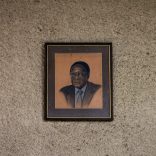
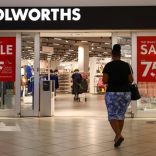

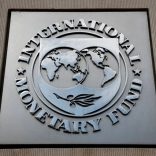
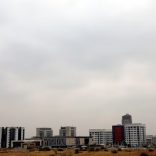
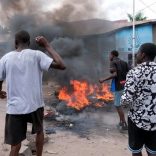
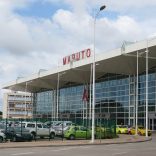



Leave a Reply
Be the First to Comment!
You must be logged in to post a comment.
You must be logged in to post a comment.